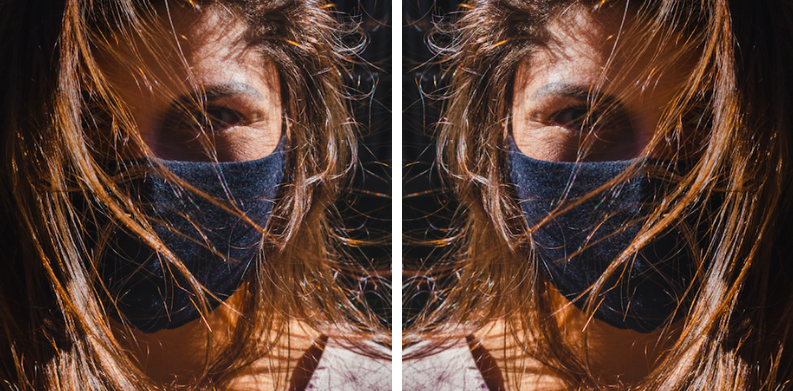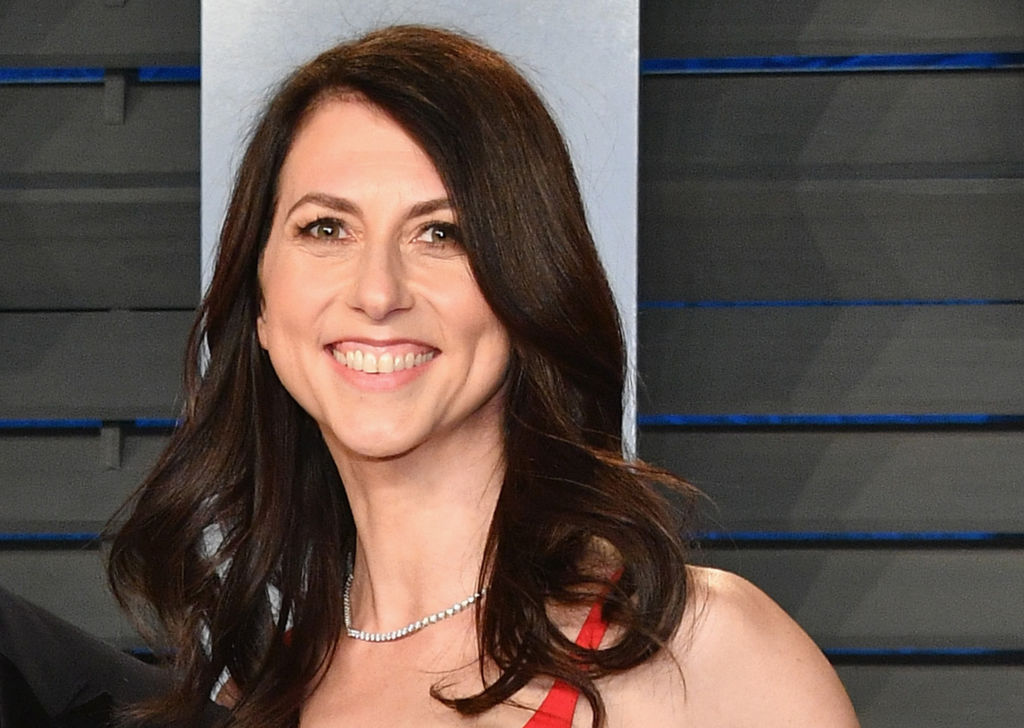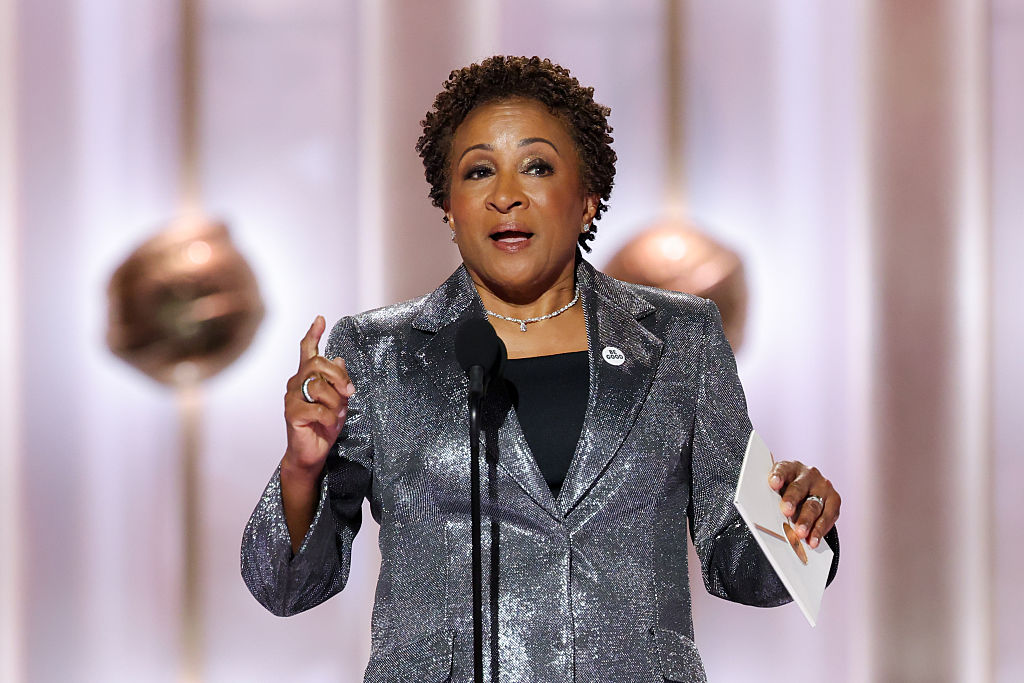The Masks We Wear: From Closeted To Quarantined

Being closeted is like living in an alternate world within this world.
It’s June during a pandemic. I’m walking in the neighborhood, hiding behind my mask and sunglasses and wearing a Lady Gaga crop top because it’s Pride month slash crop top season. I lip sync to “Chromatica” behind my mask; this normally private act can now be public, and yet, no one sees it. I walk by others in masks, wondering who’s cute and gay and if anyone else is secretly showing their hidden selves under cover of their mask. I get a smoothie and the barista looks at me: “I love your shirt. I was just listening to her!” He pumps up the volume on Lady Gaga’s “Born This Way” and I tell him that I love his Madonna shirt. It’s a small but powerful moment of being seen, as it’s the first time in the pandemic that I’ve been in public and recognized as gay while doing the same to someone else. I realize that I haven’t quite felt the loss of my gay visibility until now.
The pandemic has brought many surprises, but one of the biggest has been finding myself suddenly back in the closet, feeling in some ways like I did as a teenager. Not that I’ve actually closeted myself again, but rather as a result of the pandemic, quarantine, and loss of public or shared spaces — particularly in the LGBTQ community — my queerness has become a less visible part of my identity. COVID-19 has forced many into a private space, which for me, has been one of solitude, loneliness, and fantasy to a degree I haven’t experienced since I was an adolescent.
My closeted teenage years were the era in which I was obsessed with Shakira. I wanted to be her (smart, beautiful, multi-lingual, desirable) and also be her best gal pal (special enough to be in her inner circle) because I didn’t know I was gay and that I really wanted to be her best “gal pal.” I did know I was different or “wrong,” however, so I wanted to be someone else like Shakira because I hated myself and the world told me that I could and should be another person. I wanted to be visible as myself, though, because I desperately wanted to love and be loved. The tension between those spaces of private visibility and public invisibility or my internal and external selves created a gap that expanded exponentially as a teenager when sexuality came into focus.
Being closeted is like living in an alternate world within this world. The membrane is thin – you can clearly see everything outside of you – but it’s impenetrable. The closet put me in a constant state of disassociation, where the teenage girl in hoops, low-rise jeans, and heels had nothing to do with the one inside of me, but no one could tell. COVID-19 has created a similar situation, forcing many to go inside as they bear witness to a separate world outside. And it has forced many to put on masks that they haven’t agreed to or want to wear. The social masks we wear are made up of words as much as actions. Sexuality is not always as visible as other markers of identity, and so it is often with words that we leave the closet. From the ages of 8 to 22, I wrote thousands of words in my journals, trying to figure out what was “wrong” with me. At that time, I would watch others speak and wonder why they seemed to be so much more at ease with it. And so, I spent much of my time writing and rewriting words in my head, wanting so badly to share them with others but feeling like I couldn’t.
The pandemic has caused a rupture that has pushed many to go within, literally and figuratively, while the social uprising is giving new language to do that inner work. When I came out at 22, it was in a journal entry where I wrote that I might be attracted to women. I had to change my vocabulary as I realized that there wasn’t something “wrong” with me, just “different.” Those words initiated a process of discovering a new language. As it turns out, the one I had learned to speak while in the closet, although I was fluent in that language of heterosexuality and other dominant ideologies, was more like a second one in which I often struggled to find the right words.
Coming out was like finding my mother tongue, which had long been forgotten and buried deep inside. My language is changing again with the pandemic and social uprising because the need to unlearn and learn — which shaped my experience of being in the closet — remains more important than ever as I reckon with the status quo both inside and outside of myself. But unlike when I came out as gay, which was a solitary process, other people’s languages are changing too. Changed language brings with it changed visibility in terms of how we see ourselves and others and although the pandemic has led to a loss of public gayness, there has been a greater shift to the personal.
Audre Lorde and others have noted that the personal is political, and in a pandemic, when many only have personal relationships left as we’ve lost jobs, social engagements, activities, and so on, this truth takes on an even deeper meaning. Personal relationships can expand with shared understanding or rather, the acknowledgment of someone else’s experience as being as valid as your own. Being in the closet can be an experience of difference as you feel separate from others. But in the pandemic, this feeling of separation is now communal, which perhaps can strengthen relationships and transform the ideologies that shape us.
The future is so uncertain that you can either plan for three days from now or three years but nothing in between. But it feels like there is one certainty: to actively listen to the words and voices of others, who may have been forced to rehearse them in private but now have the chance to express them publicly. Listening is how we can discover a new language — a non-hierarchical one where we learn that difference isn’t “wrong;” it’s powerful.
It’s taken 22 years of being in the closet, 11 years of being out of it, and a few months of feeling like I’m back in it to truly understand the power of my difference. What’s changed now is that I’m no longer hiding myself out of shame. I may be hiding myself for safety reasons, but for those in my chosen and not chosen family, I can offer the parts of my difference that I once tried to deny as well as be quiet (not silenced) and just listen. In this personal, private, and ultimately political space, I can see through the membrane that there’s an outside world — not the old one that has denied the identities of so many people, but a new one where so many different words await.












